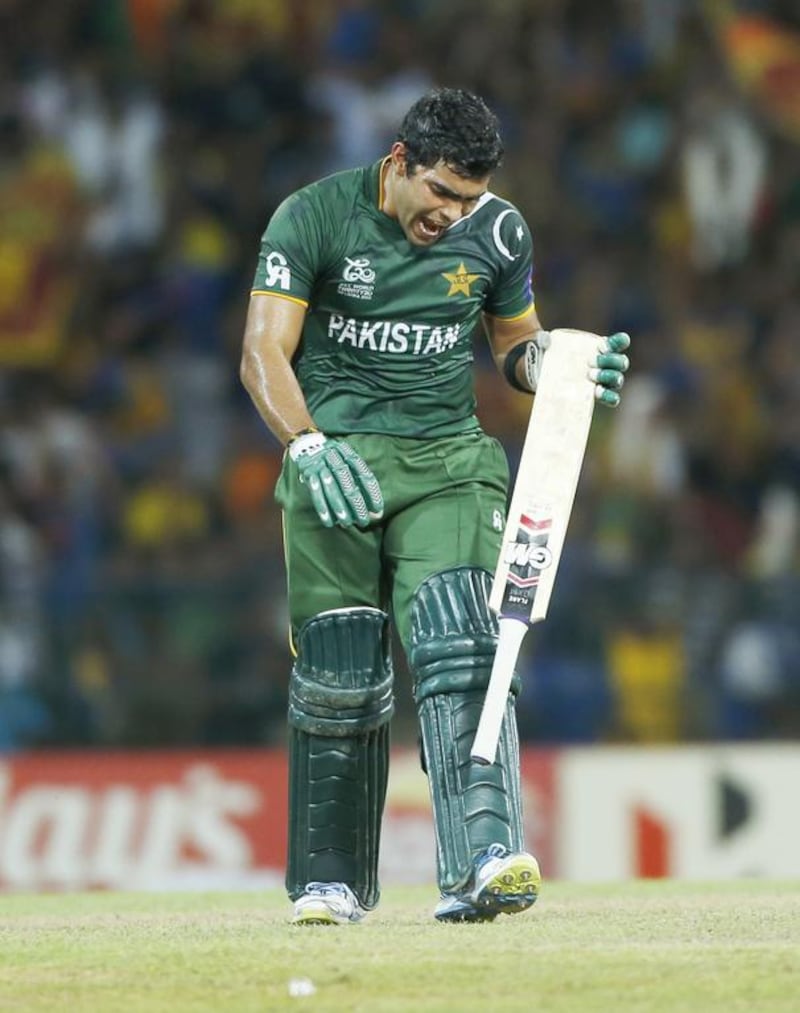What is the value of faith, especially in sport? To get an answer, you could do worse than ask two cricketers on either side of the Radcliffe Line, the border that separates India and Pakistan.
Umar Akmal has been a sporadic presence in the Pakistan XI of late. When Pakistan tumbled out of the Champions Trophy in England and Wales last June, without a win and with the worst batting line-up in the competition, he was not even in the squad.
Rohit Sharma was an integral part of India’s campaign, combining beautifully with Shikhar Dhawan at the top of the order as the team won five successive games to annex the trophy. That he was there at all, and entrusted with such a crucial role, was a tribute to the foresight of India’s selectors and team management.
Less than a year earlier, he had gone through a five-match tour of Sri Lanka with just 13 runs and a top score of five. When Pakistan toured at the turn of the year, he was not in the XI.
But with Sachin Tendulkar having retired from 50-over cricket and Virender Sehwag out of favour, he was tried as opener during the ODI series against England last January.
In 22 matches this year, Rohit has scored 1,071 runs at 59.5, with two hundreds – including Saturday’s 209 – and seven half-centuries. He and Dhawan have had five partnerships of a hundred or more as India followed up the Champions Trophy win with success in the West Indies tri series, away to Zimbabwe and at home against Australia.
In his first 40 games, spanning two years, Rohit averages less than 25.
Even as his backers in the side, including MS Dhoni, spoke of his talent, detractors sniggered. On social media, he was named “No-Hit”.
“When given responsibility, you obviously change as an individual,” he said after Saturday’s epic innings, which set up the series win against Australia.
“It’s not as if when you bat in the middle order there is no responsibility, but as an opener, you set the game, set the platform, and lay the foundation for the middle order to come and post a good total. I was mindful of the fact that I had a very important role within the team.”
Responsibility is something with which Umar has never been entrusted. Since his debut in 2009, he has never averaged less than 33 in a calendar year.
Yet, in only four of his 69 ODI innings has he batted in the top four. That he is a brilliant strokeplayer has never been in doubt. It is equally undeniable that he has not reached the heights predicted for him.
But in a line-up lacking both quality and verve, why has he not been given a Rohit-like role? Is the reluctance to play him up the order a result of the think tank’s innate conservatism, or do they really believe that he lacks the mental strength to shape an innings?
Without responsibility and faith, Umar will never do justice to his talent. Dhoni aside – and he has many other burdens to shoulder – no top ODI batsman plays outside the top four. Pakistan need only look at Rohit’s transformation to see what may still be possible with Umar.
sports@thenational.ae
Follow us on twitter at @SprtNationalUAE





